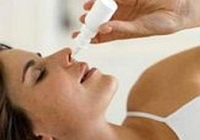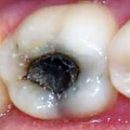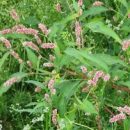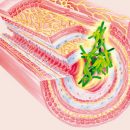Drops in nose for adults and children. Learn how to competently pick up nasal drops, what kind of varieties and the basics. Features of the application of droplets for the nose during pregnancy.
Content
 Nasal drops — Drugs for local applications, divided into many functional groups. Preparations of the same group must be interchangeable. Drops for the nose are divided into:
Nasal drops — Drugs for local applications, divided into many functional groups. Preparations of the same group must be interchangeable. Drops for the nose are divided into:
- vessels;
- diluting nasal secret;
- antibacterial;
- mitigating;
- for washing the nasal cavity;
- antiseptic action;
- hormonal;
- anti-allergic;
- immunomodulating;
- antiviral;
- homeopathic.
The choice of nasal drops depends on what you are going to treat. Before you buy a tool, ask the pharmacist to acquaint you with the instructions. For example, vasodinating drops remove the constriction and reduce the amount of nasal discharge, but with long-term uses can be addictive.
The basis of nasal drops
The base of the drug affects the level of the absorption of its active ingredients in the blood. Nasal drops are made on the basis of water, colloidal solutions, oils and polymers (ointments). We will describe in more detail what properties are characteristic of each basis and what are their features:
- Water-based drops («Naphtycin») act quickly, but for a short period due to the fact that water has rapid sufficiency. When they are used, high risk of developing side effects.
- Colloidal solutions have greater viscosity than water. Funds based on them («Collargol) are not so fast, but longer than preparations on water.
- Oil nasal drops («Pinosol») Effective only with small problems with the nose, with a large allocation of the nasal secret, the reception of such drops is inappropriate.
- Preparations based on polymers (polyethylene glycol or polypropylene glycol) are most effective and safe. The action of polymeric preparations, unlike oil based oil and nasal ointments, does not break the work of the family epithelium.
Features of vasodilators and antiallergic drops for nose
Apply vasodilating drops for the nose must be careful not to provoke addiction. They are common in symptomatic therapy. The use of vasodilatory nasal droplets is not recommended for allergies: adrenaline, which is part of the drug, increases the sensitivity of the nasal mucosa. Vasodilatory drops for the nose are successfully used for:
- symptomatic nasal congestion treatment;
- Employ removal with acute otitis;
- contribute to more efficient washing of the nose;
- well stop nasal bleeding.
Antiallergic drops in the nose help with a viral rhinitis in a patient. Standard antihistamine nose drops («Allergodil») and drops that prevent the ejection of histamine («IFIRAL»). These funds help to cope with the rhinitis of allergic nature. With viral congestion, antihistamine drops for the nose stabilize cell membranes, which prevents the further penetration of the virus, reduce the amount of discharge from the nose and remove the swelling.
Drops for the nose during pregnancy
 Choosing nasal drops during pregnancy — Very responsible case. To begin with, it is necessary to identify the reason for the appearance of a cold or another pathological state of the nose. The diagram of treating acute respiratory diseases, for example, depends on the current state of the future mother and from the solution of the gynecologist. Choice of nose drops need to discuss with a presenter of your pregnancy gynecologist. During pregnancy, the use of folk remedies is possible, but also under the guidance of the doctor. Special caution require nasal drops with vegetable extracts or essential oils — they can cause an allergic reaction. With any form of rhinitis during pregnancy, treatment and selection of drops for the nose must be agreed with the attending specialist.
Choosing nasal drops during pregnancy — Very responsible case. To begin with, it is necessary to identify the reason for the appearance of a cold or another pathological state of the nose. The diagram of treating acute respiratory diseases, for example, depends on the current state of the future mother and from the solution of the gynecologist. Choice of nose drops need to discuss with a presenter of your pregnancy gynecologist. During pregnancy, the use of folk remedies is possible, but also under the guidance of the doctor. Special caution require nasal drops with vegetable extracts or essential oils — they can cause an allergic reaction. With any form of rhinitis during pregnancy, treatment and selection of drops for the nose must be agreed with the attending specialist.









